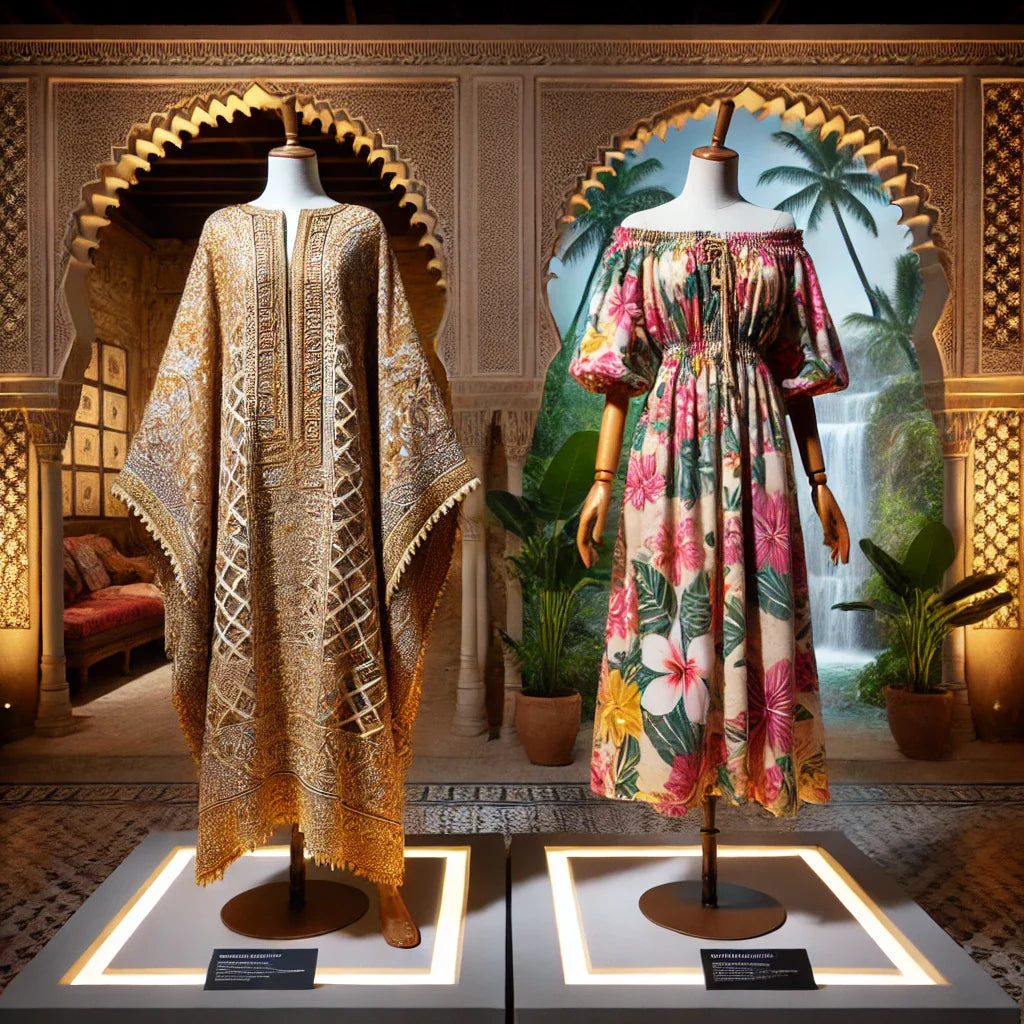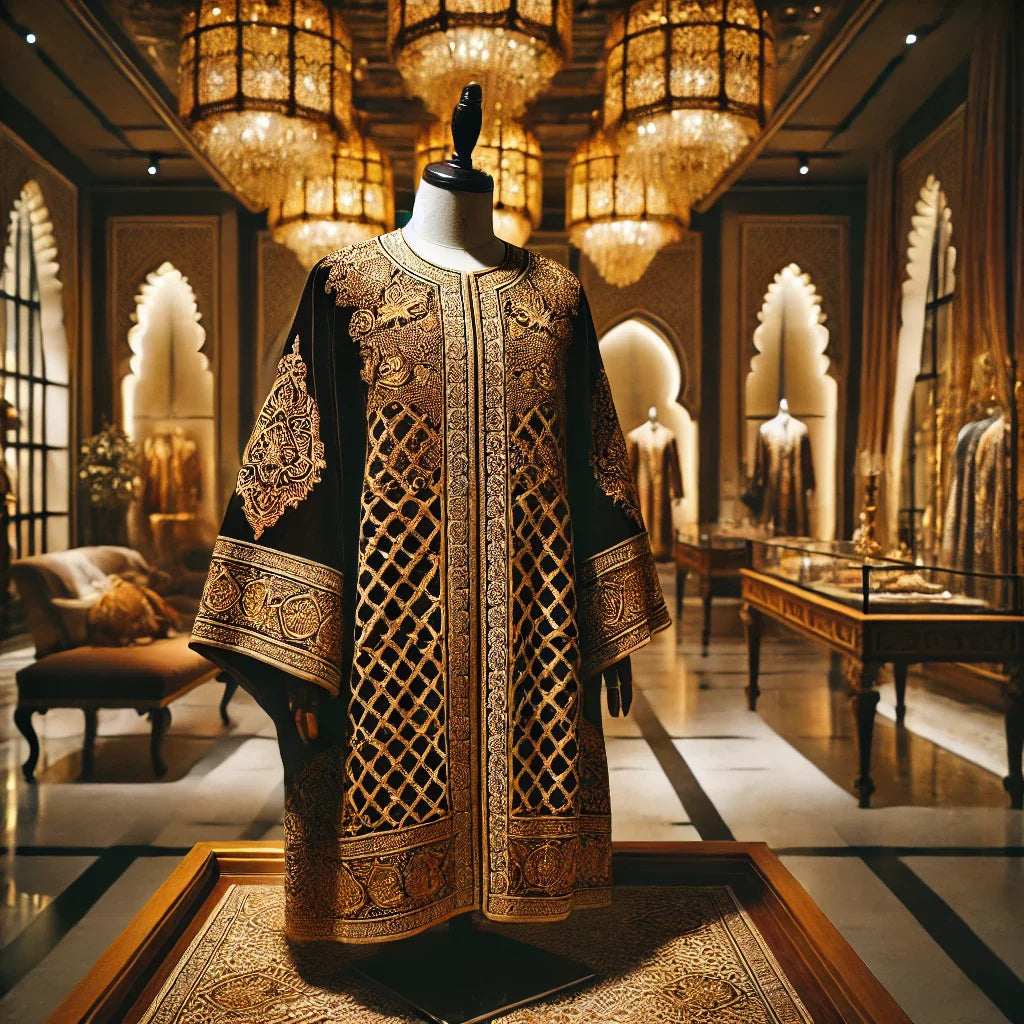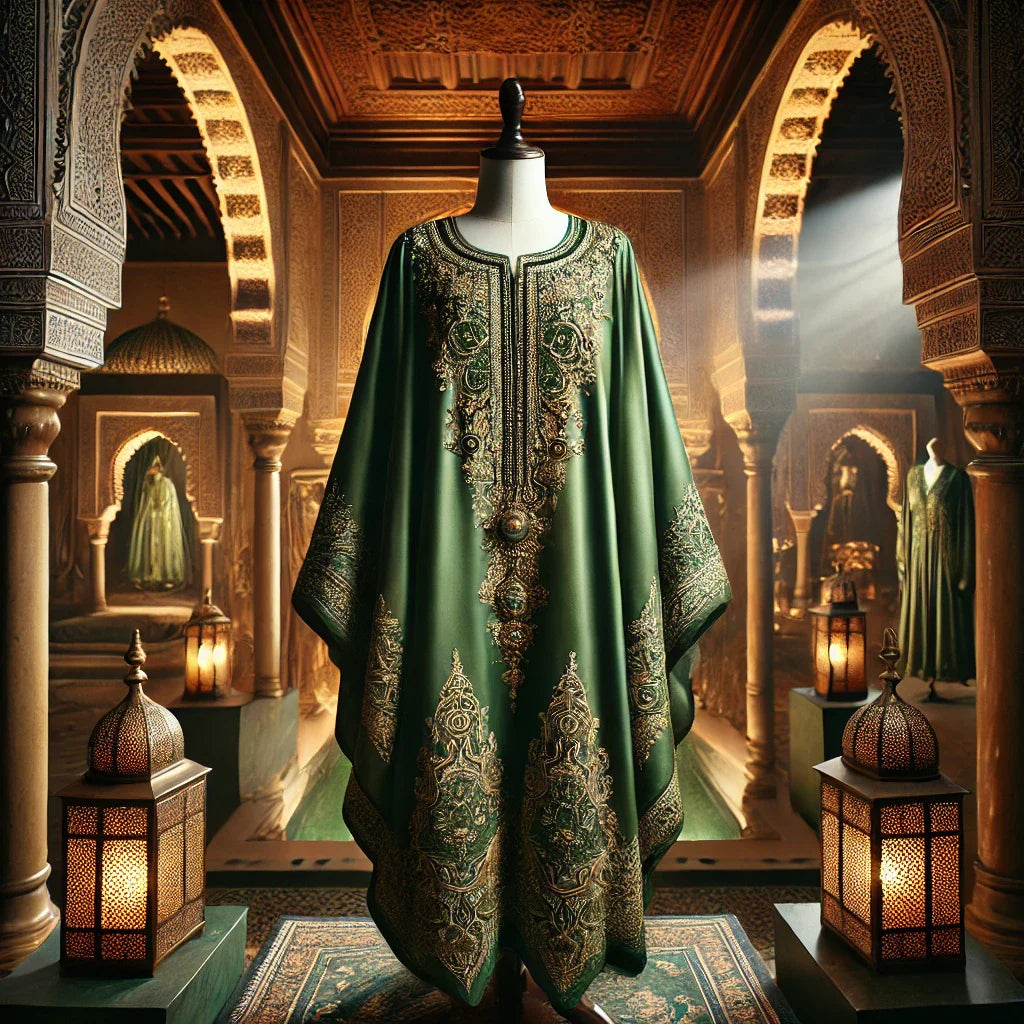
What is the difference between a caftan and a mumu?
The kaftan and the mumu are two long, flowing garments often associated with comfort and elegance. While these garments may seem similar at first glance, they have distinct origins, uses, and styles.
The caftan is an iconic piece of clothing in the Middle East, particularly in Morocco. It is worn for special occasions such as weddings and religious festivals. Refined, adorned with embroidery and pearls, it represents pure elegance. In contrast, the mumu , originating from the Pacific Islands, is a loose, lightweight dress designed for everyday comfort. While it may be sophisticated, it does not have the same cultural significance or usage as the caftan .
So, how do you differentiate these two outfits? When should you wear a caftan and when should you opt for a mumu ? This article will help you understand the nuances between these two clothing styles and choose the one that best suits your style and event.
👉 Discover our White Caftan collection and find the perfect outfit to combine tradition and elegance!
I. Origins and history: very distinct cultural influences
1. The caftan: an ancestral outfit with royal influences
The caftan has its roots in the Persian and Ottoman Empires. It was originally worn by sultans and dignitaries before becoming more popular, particularly in Morocco, where it became a prestigious garment reserved for special occasions.
👉 Enhance your figure with a model from our White Caftan collection!
2. The mumu: a dress born in the Pacific Islands
Unlike the caftan , the mumu is a more recent garment, popularized in Hawaii and Polynesia. Created to provide maximum comfort in hot climates, it is loose-fitting, unstructured, and often made of lightweight cotton.
👉 Opt for a flowing and refined outfit with our White Caftan collection!
3. A difference in status and usage
The caftan is a ceremonial piece, synonymous with elegance and refinement. The mumu is a more casual outfit, ideal for hot days and daily well-being.
👉 Find kaftan models worthy of the greatest occasions in our White Caftan collection!
II. Design and Style: Luxury versus Simplicity
1. The caftan: a worked and decorated garment
The caftan is made from fine fabrics such as silk, velvet, or lace. It is often embroidered, beaded, and features a belt that structures the silhouette, making it both elegant and majestic.
👉 Treat yourself to a luxurious caftan in our White Caftan collection!
2. The mumu: a loose and minimalist dress
The mumu is typically made of cotton or linen, with colorful patterns inspired by tropical landscapes. It has no belt or fitted cut, prioritizing comfort over sophisticated aesthetics.
👉 Discover elegant and refined models in our White Caftan collection!
3. A question of style and personality
If you're looking for an elegant outfit for a special event, the caftan is your best choice. On the other hand, if you're looking for comfort and simplicity in everyday wear, the mumu can be a pleasant option.
👉 Find the perfect caftan to express your style in our White Caftan collection!
III. On what occasions should you wear a caftan or a mumu?
1. The caftan: ideal for weddings and large ceremonies
The caftan is a prestigious outfit perfect for weddings, gala evenings, and religious festivals. It adds an incomparable touch of elegance and gracefully enhances femininity.
👉 Enhance your look for a special occasion with our White Caftan collection!
2. The mumu: a perfect outfit for summer and vacations
The mumu is an ideal dress for warm days, seaside holidays, or relaxing moments. It offers great freedom of movement and absolute comfort.
👉 Combine fluidity and elegance with a lightweight caftan from our White Caftan collection!
3. A choice that depends on the event and the desired style
If you're looking for a sophisticated and chic outfit, the caftan is the best choice. For a casual and airy look, the mumu is more suitable.
👉 Find models suitable for every occasion in our White Caftan collection!



Leave a comment
This site is protected by hCaptcha and the hCaptcha Privacy Policy and Terms of Service apply.